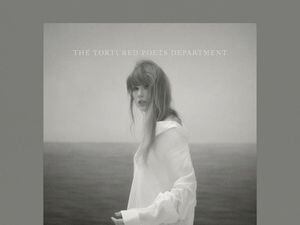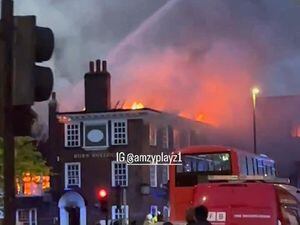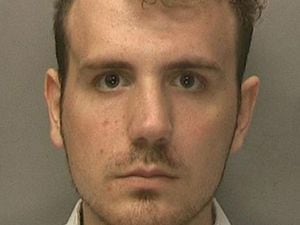Government urged to end public sector pay cap amid rising prices
Jeremy Corbyn told Theresa May that the UK was the only major economy where wages are lower today than they were 10 years ago.

The Government has come under fresh pressure to order an immediate end to the cap on public sector pay after new figures showed prices rising faster than wages for the sixth month in a row.
Labour leader Jeremy Corbyn told Theresa May during Prime Minister’s Questions in the Commons that the UK was the only major economy where wages are lower today than they were 10 years ago.
Unions stepped up demands for a decent pay rise for millions of public sector workers, warning that many faced a “toxic mix” this winter of falling wages and a freeze of in-work benefits.
The Government hailed figures showing that unemployment has fallen to a 12-year low, after the jobless total was cut by 52,000 in the quarter to August to 1.4 million, with women driving the growth in employment.
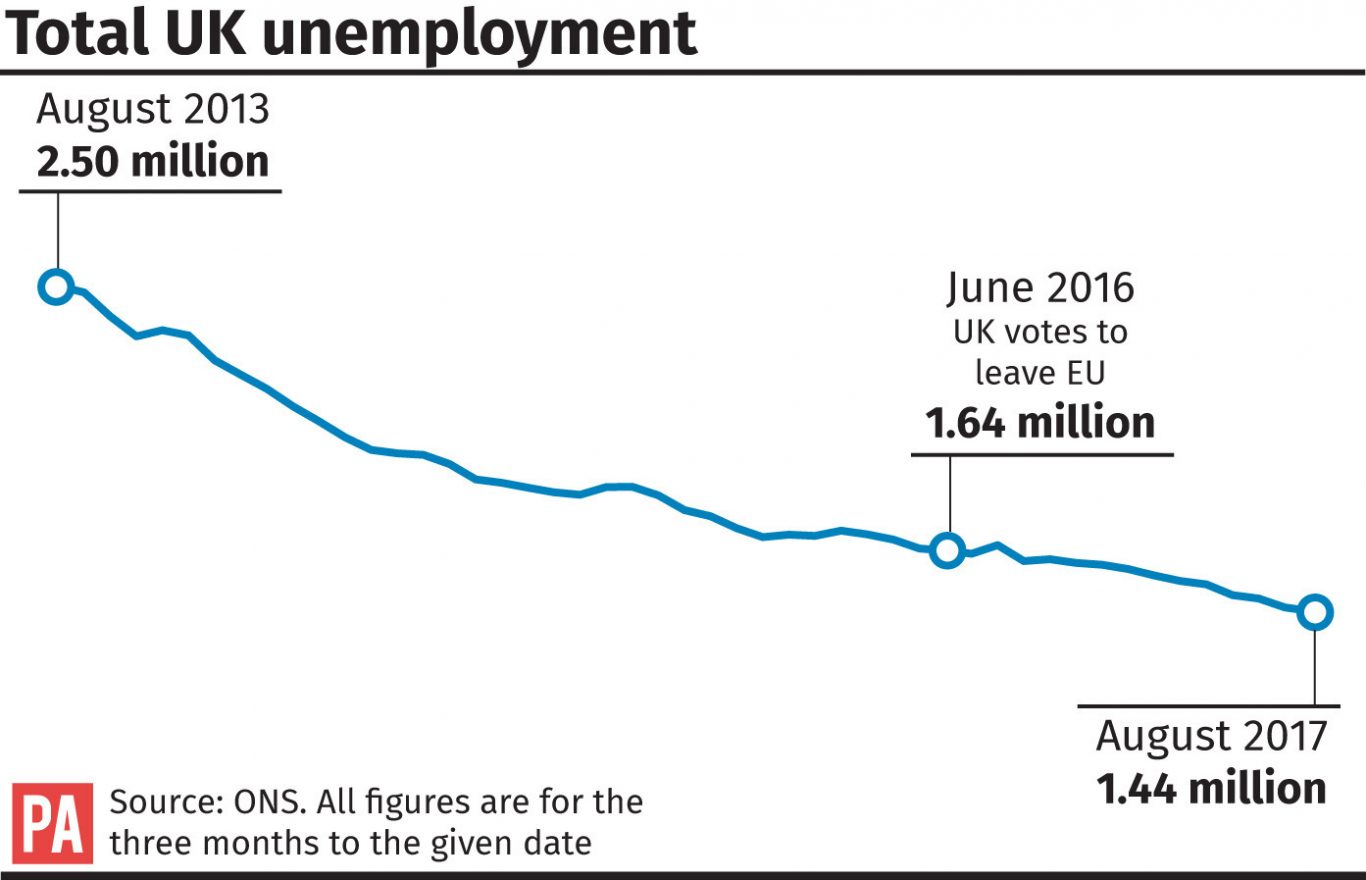
More than 32 million people are in work after a rise of 52,000, including 15 million women, with the female employment rate reaching a record 70.7%, the Office for National Statistics reported.
The data also revealed that average earnings increased by 2.2% in the year to August, unchanged from the previous month, and below the latest RPI inflation rate of 3.9% and 3% for CPI inflation.
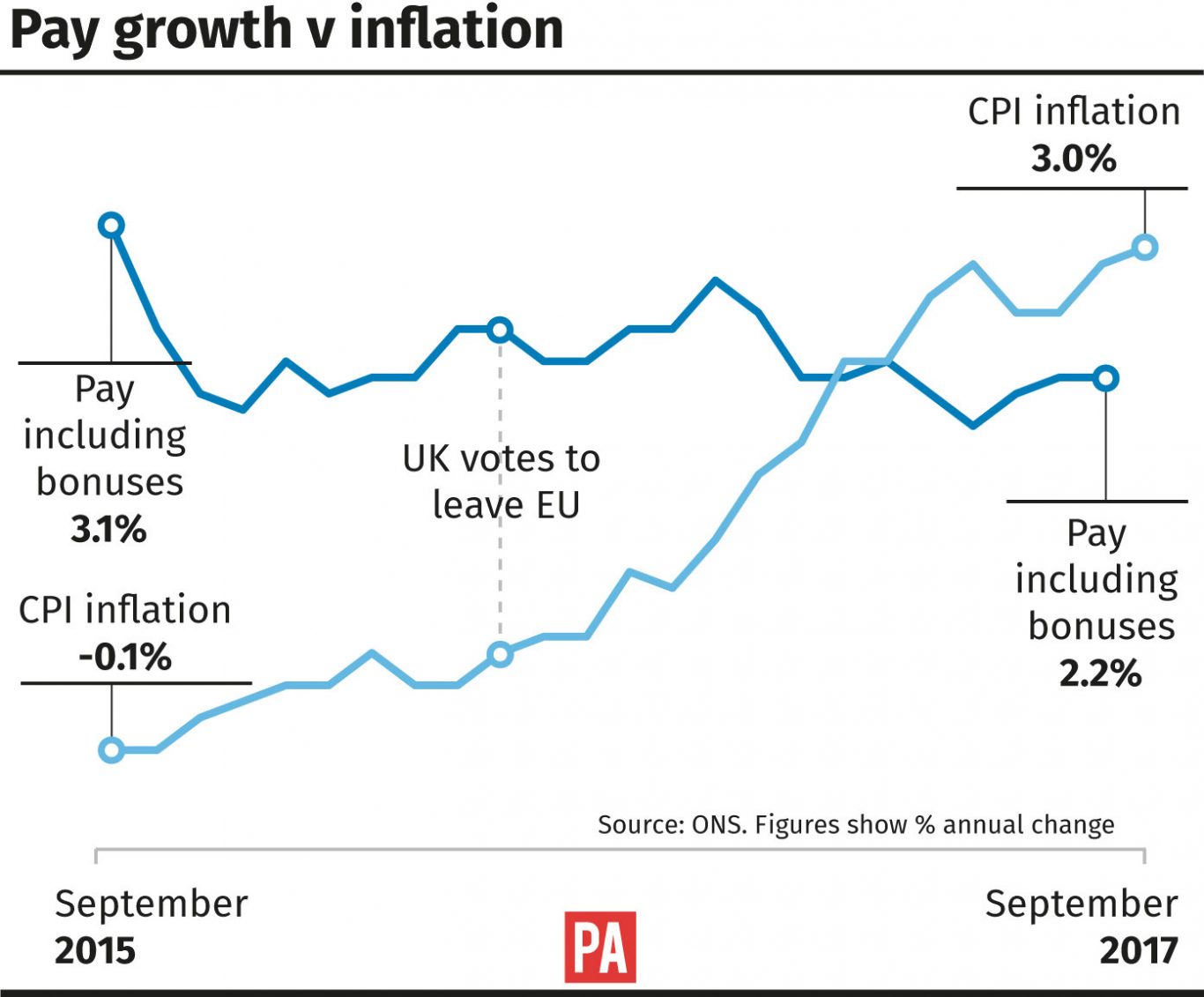
ONS statistician Matt Hughes said: “Many labour market measures continue to strengthen. On the other hand, total earnings in cash terms grew slower than prices over the last year, meaning the real value continues to fall – down 0.3% over that period.”
Employment minister Damian Hinds said: “Our economy is helping to create full time, permanent jobs which are giving people across the UK the chance of securing a reliable income.
“We’ve boosted the income for people on the lowest pay by increasing the national living wage and delivered the fastest pay rise for the lowest earners in 20 years.”
TUC general secretary Frances O’Grady said said pay packets were taking a “hammering”, adding: “The Chancellor must help struggling families when he gives his Budget next month.This means ditching the artificial pay restrictions on nurses, midwives and other public sector workers and investing in jobs that people can live on.”
Margaret Greenwood, shadow employment minister, said: “With a record number of working people living in poverty, the news that real wages have fallen yet again is deeply concerning.”
Unite general secretary Len McCluskey said: “While any fall in unemployment is positive, Government minsters must get a grip of the continued squeeze in incomes that is leaving many families struggling to make ends meet.
“The Government must be mindful that its continued proclamations of a jobs miracle will go down like the proverbial lead balloon among people piecing two and three badly-paid, insecure jobs together to get by.”
Ian Brinkley of the CIPD, the professional body for human resources employees, said: “With no end in sight to this squeeze on living standards, many workers will be facing a Christmas period where they will once again be required to tighten their belts.”
The UK now has an unemployment rate of 4.3%, the joint lowest since 1975.
The increase in the employment rate for women is partly due to ongoing changes to the state pension age, resulting in fewer women retiring between the ages of 60 and 65.


